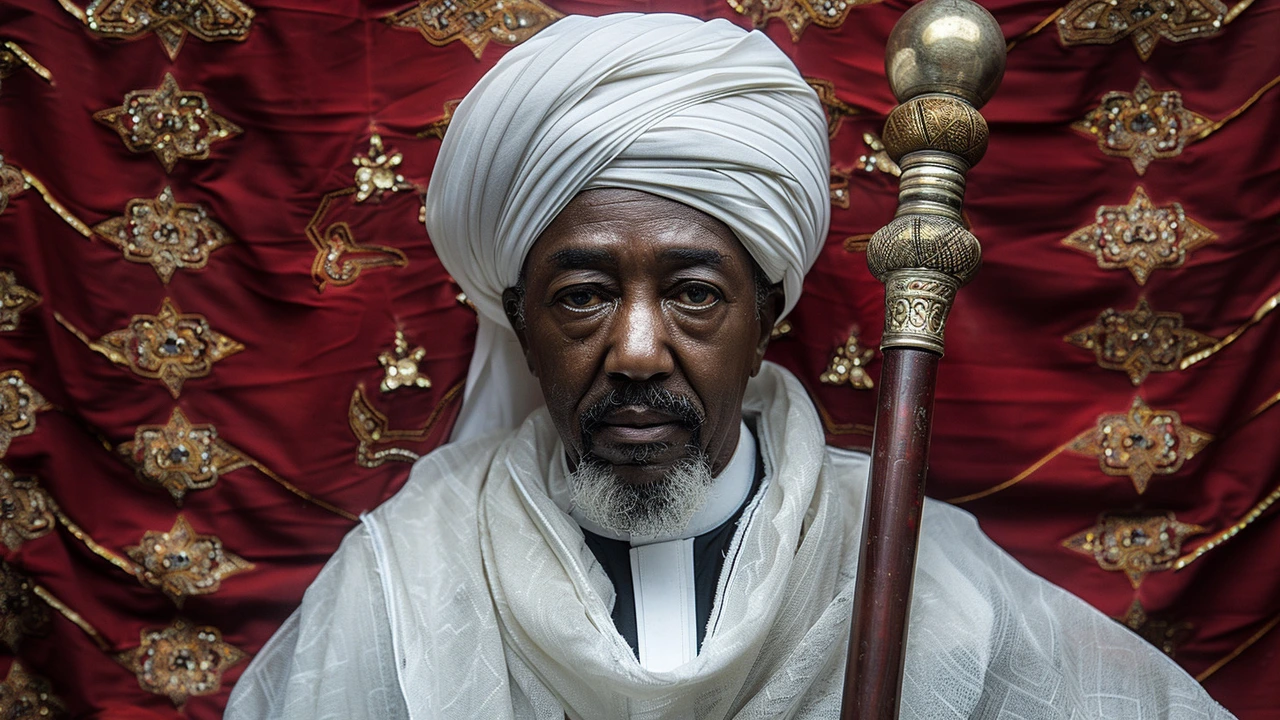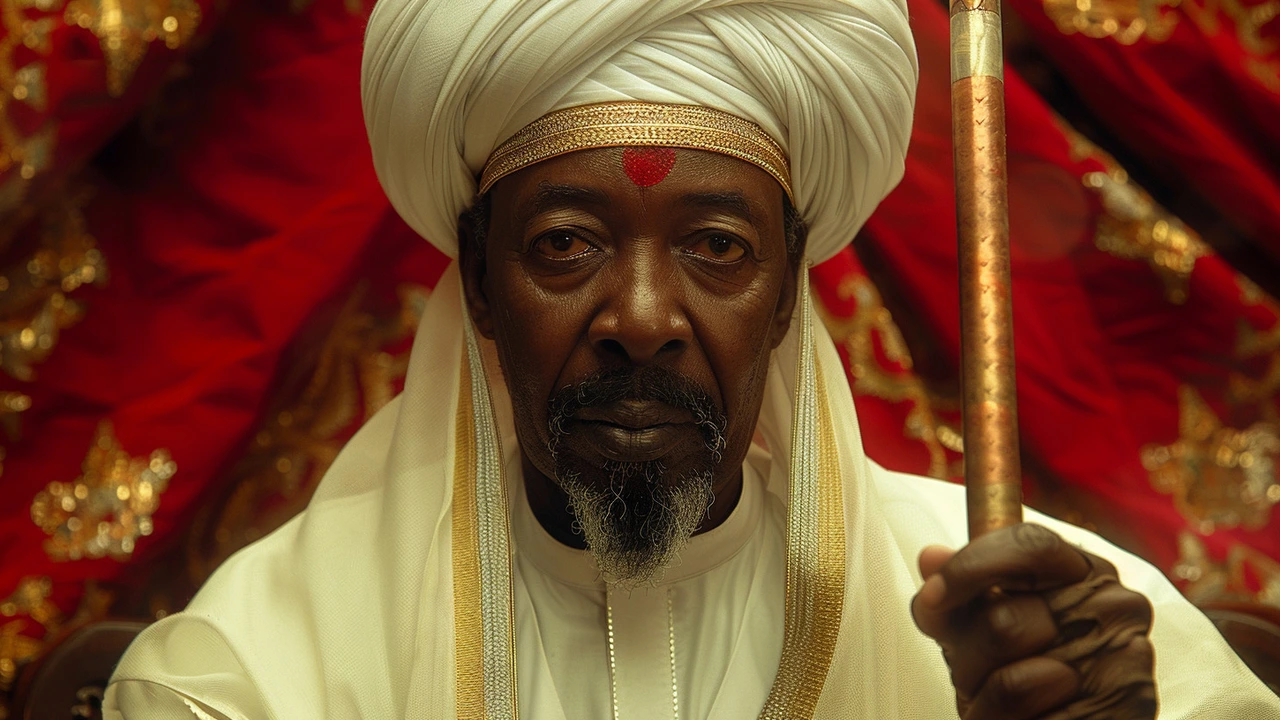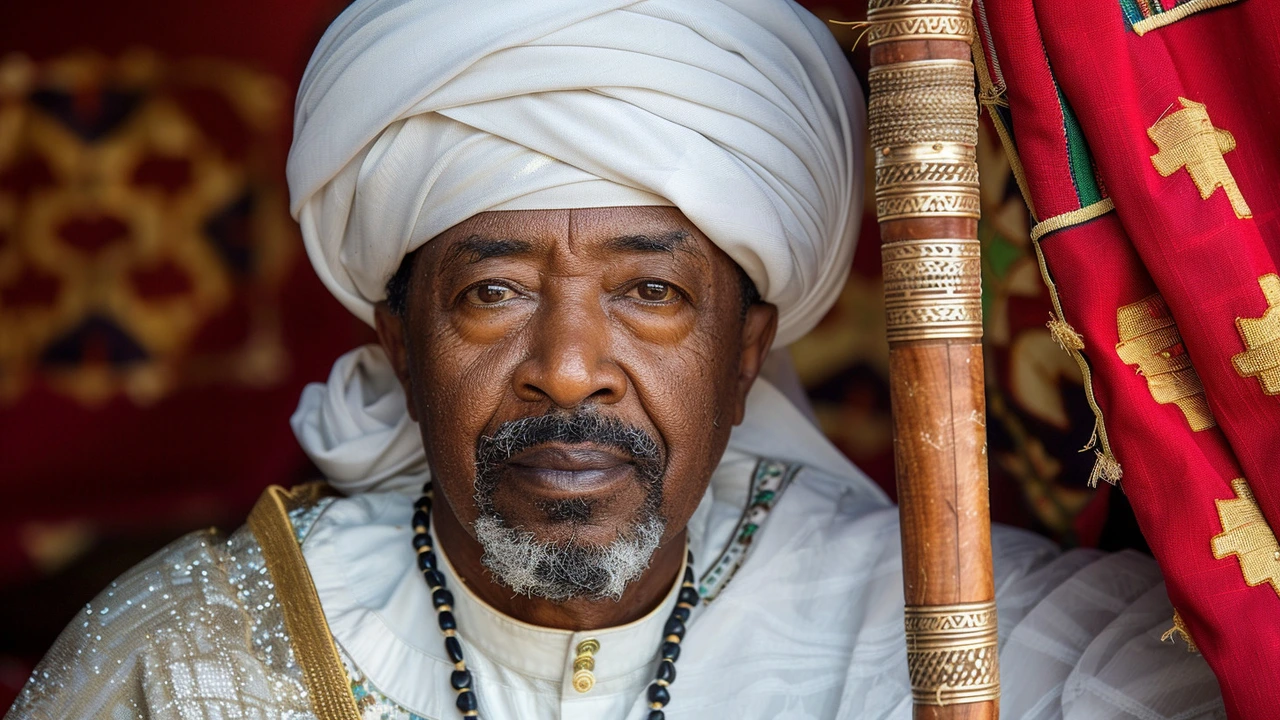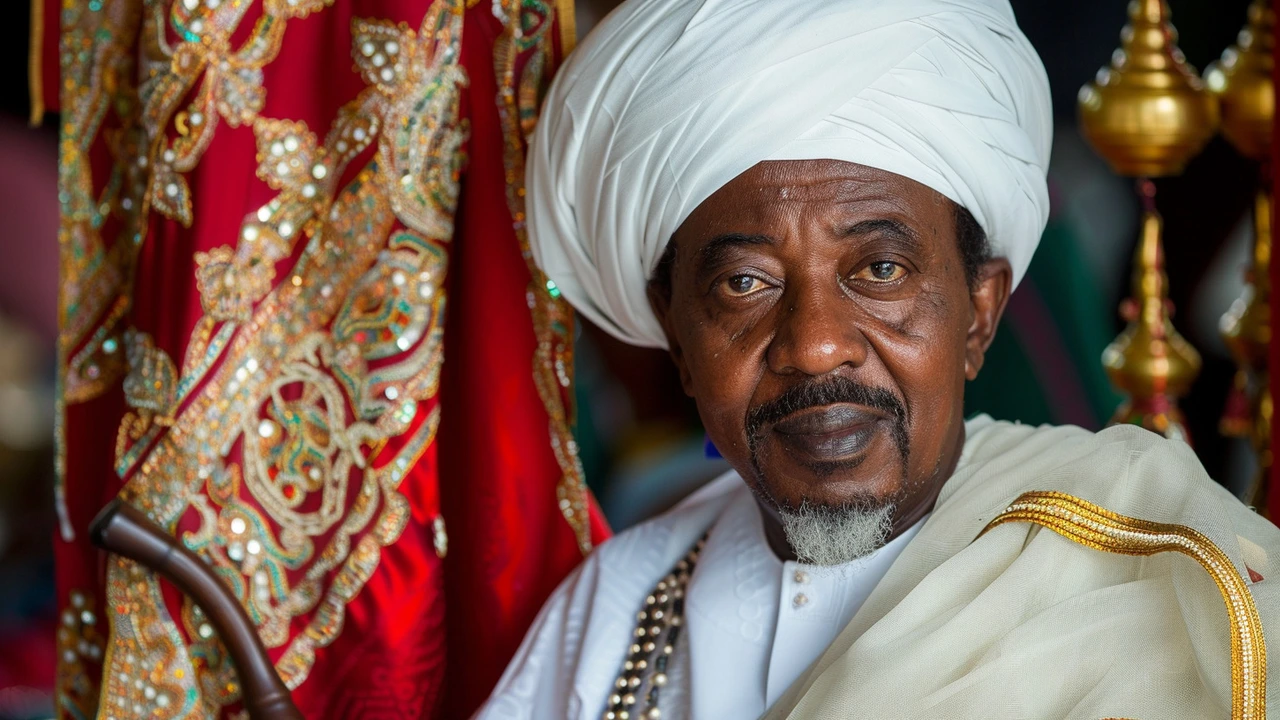Kano State Assembly Repeals Controversial Emirate Council Law, Opening Door to Sanusi's Possible Return
 May, 23 2024
May, 23 2024
Kano State Assembly Repeals the Emirate Council Law
In a significant political move, the Kano State Assembly has annulled the Emirate Council Law of 2019 and its subsequent 2023 amendment. The unanimous decision effectively dismantles the five new emirates established by the former Governor Abdullahi Umar Ganduje. This pivotal ruling will revert the traditional governance structure back to a single emirate, under one Emir of Kano. The responsibility to appoint this emir now lies solely with the state governor, Abba Kabir Yusuf.
The original law, enacted in 2019, had divided Kano's traditional council into five distinct emirates: Kano, Bichi, Rano, Karaye, and Gaya, each headed by its own emir. This move was controversial from the outset, viewed by many as a deliberate attempt by the Ganduje administration to curb the influence of the then-Emir of Kano, Sanusi Lamido Sanusi II. Sanusi, who had been a vocal critic of Ganduje's policies, was dethroned in 2020. His removal sparked widespread debate and polarized opinions across Nigeria.

Political Underpinnings and Implications
The repeal of this law signifies more than just a legislative rollback. It is seen as a direct undoing of Ganduje's political strategies. Many believe that the merging of the emirates and subsequent appointment of separate emirs were orchestrated to dilute Sanusi's power and influence. By reinstating the single emirate structure, the current administration under Governor Yusuf appears to be seeking to restore traditional order and possibly address grievances held by the populace.
Governor Yusuf’s involvement in this decision points to a broader political narrative. It reflects his administration's efforts to consolidate power and possibly strengthen alliances with traditional leaders. Centralizing the emirate's authority could enhance the governor’s influence and control over Kano state’s traditional and political landscapes.

The Potential Return of Sanusi Lamido Sanusi II
One of the most compelling aspects of this story is the speculation surrounding the return of Sanusi Lamido Sanusi II as the Emir of Kano. According to several credible sources, Sanusi is expected to return to Kano on Friday. His reinstatement could mark a dramatic turn in Kano's political theater. Sanusi, known for his outspoken nature and reformist views, had garnered both support and criticism during his tenure as Emir.
Sanusi's possible return might be seen by his supporters as a victory for justice and traditional order. For his critics, however, it could reignite past controversies and political tensions. It remains to be seen how this potential development will unfold and impact Kano's political dynamics.

Broader Implications for Kano's Governance
The dissolution of the multiple emirates and potential reinstatement of Sanusi hold broader implications for the governance of Kano State. Traditional structures play a crucial role in the state's political and social fabric. The governor's ability to appoint a single emir could centralize authority, but it could also prompt challenges and opposition from those who benefitted from the previous structure.
This significant shift comes at a time when many Nigerians are calling for greater accountability and transparency in governance. The dismantling of the emirates may be perceived as an attempt to correct previous political maneuverings, but it is not without its risks. Reactions from relevant stakeholders, including the former emirs and their supporters, could shape the future political landscape of Kano.
Historical Context and Legacy
The Emir of Kano has historically held significant influence in Northern Nigeria. The title carries weight not just in a traditional sense but also in political and economic aspects. The abrupt changes to the structure of the emirates, first by Ganduje and now by Yusuf, underscore the deeply intertwined nature of politics and tradition in Nigeria.
The reinstatement of Sanusi, if it happens, could be seen as a restorative move. Sanusi, a former Central Bank Governor, brought a modern and reformist touch to the emirate during his tenure. His return could signal a blend of traditional authority with a progressive approach, potentially impacting policies and governance in Kano.
What Lies Ahead
The coming days are critical for Kano State as it navigates this complex transition. The reactions from the public, traditional leaders, and political stakeholders will be telling. The potential reinstatement of Sanusi adds a layer of intrigue to this already compelling narrative. As events unfold, the implications on Kano's traditional and political landscapes will become clearer.
This story is not just about the repeal of a law or the dethronement of emirs; it is about the ongoing balance of power, the role of tradition in modern governance, and the future direction of one of Nigeria's most influential states. As the situation develops, it will undoubtedly continue to capture the attention of observers both within and outside Nigeria.

Rahul kumar
May 23, 2024 AT 19:44Yo folks, the Kano Assembly just ripped out the 2019 Emirate Council Law, which had split the traditional emirate into five parts. This move basically rolls back Ganduje's experiment and puts the power back into a single emirate under the governor’s pick. It’s a big win for those who felt the split was just political theatre. The repeal also means the former emirs lose their official status, so expect a shuffle in the traditional council. Hopefully this steadies the political waters in Kano for the next few years.
mary oconnell
May 23, 2024 AT 20:34Well, isn’t this just the epitome of “political realignment”-a masterclass in institutional rebranding, if you ask me. The governor’s latest decree reads like a case study in power consolidation, complete with all the usual buzzwords about “traditional order” and “good governance.” One can almost hear the echo of a think‑tank whitepaper as the single emirate model is re‑installed. Of course, the critics will spin this as a nostalgic regression, but let’s be honest, it’s just elite bargaining in a new disguise. So grab your popcorn, because the drama in Kano isn’t over yet.
Michael Laffitte
May 23, 2024 AT 21:24Totally feel you, Rahul! The whole thing feels like a sequel to a political soap opera, only the stakes are real and the characters wear robes. Re‑uniting the emirates might bring some stability, but it also revives the old power structures that many thought were finally broken. I’m watching this with bated breath, hoping the new emir can actually push reforms instead of just holding the title. Either way, Kano’s political theatre just got a fresh script.
sahil jain
May 23, 2024 AT 22:14Look, the governor’s move is a clear signal that Kano wants to streamline its leadership hierarchy. By appointing a single emir, the state can avoid the bureaucratic maze that the five‑emirate system created. This should make decision‑making faster and reduce inter‑emirate rivalries that have hampered development projects. It’s also a chance for the new emir to focus on modernizing the region rather than juggling territorial disputes.
Bruce Moncrieff
May 23, 2024 AT 23:04Whoa, Sahil, you’ve nailed the core issue! The speed of decisions could definitely improve, but we have to ask who gets to call the shots now. If the governor picks someone aligned with his own agenda, the “streamlining” might just be a cover for tighter control. Still, the people of Kano deserve a leader who can actually address education and health challenges. Let’s see if the new emir can break the pattern of political puppetry.
Dee Boyd
May 23, 2024 AT 23:54Honestly, this whole back‑and‑forth is a moral quagmire. Stripping away the five emirates was already a blunt instrument to silence dissent, and now re‑centralizing power feels like a recycled maneuver to keep traditional authority under state influence. It’s a classic case of power abusing its own legitimacy. The real question is whether any leader will prioritize the welfare of citizens over political expediency.
Carol Wild
May 24, 2024 AT 00:44What we’re seeing isn’t just a simple legislative tweak; it’s a meticulously orchestrated campaign designed by shadowy elites to reshape Nigeria’s power matrix. First, the 2019 law emerged under the guise of administrative efficiency, but insiders whisper that foreign think‑tanks funded the split to dilute the influence of a reformist voice. Then, the 2023 amendment added layers of bureaucracy, ensuring that each new emirate fell under the patronage of loyalists. The recent repeal, cloaked in “restoring tradition,” is actually a pre‑emptive move to prevent any resurgence of autonomy that could threaten entrenched interests. The governor’s sudden alignment with the old guard suggests a clandestine agreement whispered behind closed doors. Moreover, the timing-just before the national elections-indicates a strategic bid to consolidate votes in the North. Critics who label this as mere politics are missing the deeper tacit collusion between military elites and regional power brokers. A pattern emerges: each legal adjustment coincides with a shift in military appointments within the state’s security apparatus. This isn’t coincidence; it’s a coordinated effort to align the emirate’s authority with federal power structures. The media’s silence on these connections points to a wider censorship campaign, likely funded by undisclosed benefactors. We must also consider the role of international banking interests; after all, Sanusi’s background as a former central bank governor makes him a perceived threat to global financial agendas. The repeal may be a signal to those circles that Kano is back in the fold of conventional economic policies. In essence, the law’s reversal is less about tradition and more about re‑establishing a pliable hierarchy. The populace deserves transparency, yet the narrative is being sculpted by those who profit from uncertainty. Until independent auditors examine the financial flows behind these decisions, the true motives will remain shrouded in official rhetoric.
Rahul Sharma
May 24, 2024 AT 01:34Indeed, the historical context of Kano’s emirate system is profoundly intertwined with the region’s cultural identity, and the recent legislative reversal, therefore, warrants a meticulous examination, as it not only affects political structures but also reverberates through the socioeconomic fabric of northern Nigeria; for instance, the consolidation of authority under a single emir could streamline dispute resolution mechanisms, enhance coordination of religious festivals, and potentially attract greater federal investment, all of which underscore the necessity for transparent appointment processes, rigorous stakeholder consultations, and a clear delineation of the emir’s constitutional powers.
Emily Kadanec
May 24, 2024 AT 02:24Sounds like a plan, but only if it’s done right.
william wijaya
May 24, 2024 AT 03:14Reading your take, Michael, I can feel the tension between hope and skepticism pulsing through the streets of Kano. The community’s collective psyche is caught in a whirl of anticipation, where every proclamation feels like a seismic shift in the sociopolitical landscape. If the new emir can harness that energy towards tangible reforms-education, healthcare, infrastructure-then the drama transforms into progress. Otherwise, we’ll witness yet another cycle of rhetoric without substance, a pattern that’s become all too familiar in the region’s governance narrative.
Lemuel Belleza
May 24, 2024 AT 04:04The whole thing feels like a rehash of old politics.
faye ambit
May 24, 2024 AT 04:54While it’s tempting to dismiss the repeal as a mere echo of past power plays, we should also consider the possibility that this juncture offers a genuine opening for dialogue between traditional authorities and modern state institutions, potentially fostering a more inclusive governance model that respects cultural heritage while embracing progressive reforms.
Subhash Choudhary
May 24, 2024 AT 05:44Honestly, I think most folks just want stability after years of back‑and‑forth.
Ethan Smith
May 24, 2024 AT 06:34Stability, indeed, can be quantified by measurable improvements in public service delivery, reduction in administrative redundancies, and enhanced citizen trust metrics following the centralization of the emirate system.
Evelyn Monroig
May 24, 2024 AT 07:24Don’t be fooled by those “metrics”-they’re fabricated by a shadow network intent on masking the true agenda of consolidating power within a covert elite that manipulates data to legitimize their control over the populace.
Gerald Hornsby
May 24, 2024 AT 08:14Another twist in Kano’s saga-stay tuned! 😏
Hina Tiwari
May 24, 2024 AT 09:04I feel the weight of this change on the everyday people, its like a new chapter that could either lift them up or pull them down, hope it leeds to better futures.
WILL WILLIAMS
May 24, 2024 AT 09:54Let’s rally behind a visionary emir who can blend tradition with tomorrow’s innovation!
Barry Hall
May 24, 2024 AT 10:44Agreed, balanced leadership is the key. 👍